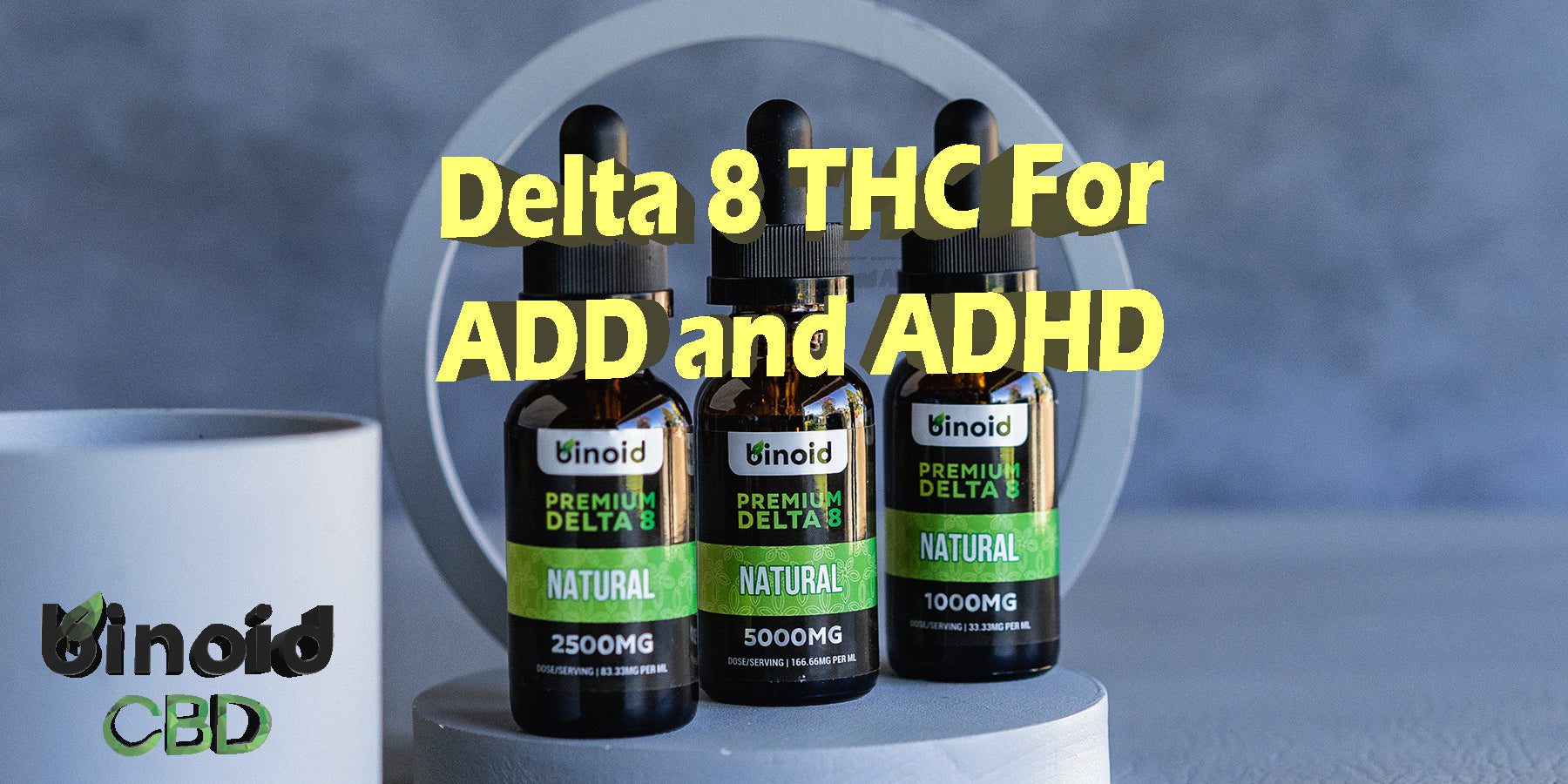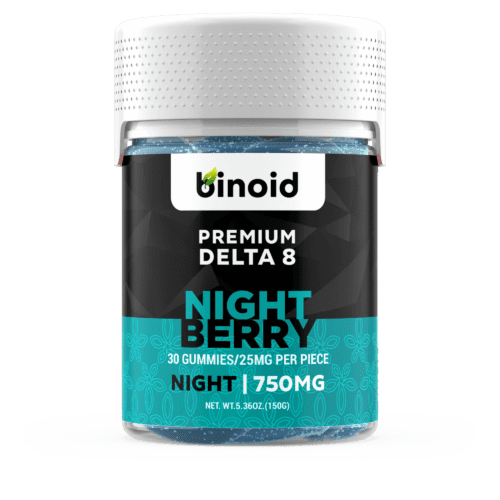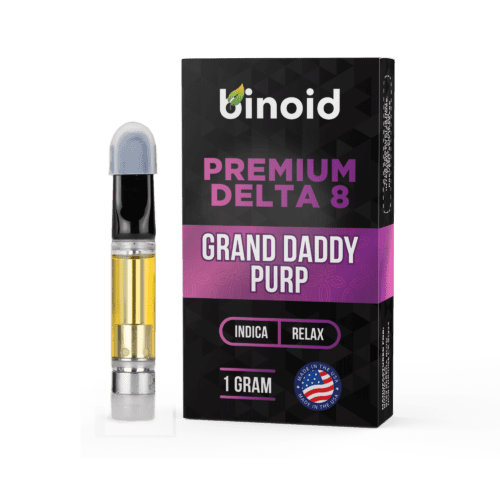
Delta 8 THC For ADHD and ADD
Attention-Deficit Disorder (ADD) affects over 3 million Americans, including both children and adults. Still a fairly new diagnosis, it is estimated that there are even more adults who have ADD and have never been given a proper diagnosis. This mental health disorder largely pertains to one’s ability to concentrate and focus their attention. It’s also associated with hyperactivity due to an enhanced need for stimulation.
Many of us who have a lot of energy joke that we have “ADD” or “ADHD”. without really understanding the serious impact that this disorder can have on a person’s life. The reality is that ADD can be debilitating, especially if not treated or managed. It can interfere with a person’s ability to maintain a steady job, can interfere with relationships, and can put a person at a disadvantage by interfering with a person’s education.
Although there are a wide array of medications and treatments out there, a newly upcoming holistic way to help treat or manage it might be coming from the hemp plant. Hemp is being given more attention by medical researchers, and we’re discovering that certain compounds may offer distinctive uses that could be helpful to those who have ADD. So, we will find out whether or not delta 8 THC and Delta-8 products are one of them.
To buy Delta 8 THC Products Click Here
ADHD and ADD
Before we get into the specific symptoms and causes for Attention-Deficit Disorder, it’s best to clarify something that continues to confuse people. ADD and ADHD are two separate terms that are commonly used to describe the same disorder because technically, they are the same disorder.
ADD is the term used more widely, but in fact, the term has been replaced with ADHD over the years due to ADD becoming outdated. ADHD stands for Attention-Deficit Hyperactivity Disorder, and better represents the nature of the disorder as hyperactivity is a prevalent symptom. But, as ADD is the term that’s still used more than the other, that will be the term used in this article.
What is ADD?
As mentioned, ADD is a disorder that has to do with a person’s ability to concentrate and focus on individual tasks. It is believed to be neurological in origin, affecting the cognitive center of the brain. A person who has Attention-Deficit Disorder will struggle to pay attention for long periods of time, as their brain requires more frequent stimulation than average. As a result, ADD sufferers tend to have hyperactive tendencies such as fidgeting and the need to walk around. They may have exceedingly high energy levels as well, referred to as hyperactivity.
Attention-Deficit Disorder can make many aspects of life a struggle. Children with the condition are at a disadvantage, as we said earlier, because a typical school setting it not compatible with their specific learning needs. Paying attention in a traditional classroom environment can be incredibly challenging, and as a result, a student may not be able to absorb information presented by a teacher, focus on individual work assignments, and take tests.
Adults who have ADD may struggle with the same difficulties in a work environment and may have a hard time finding work that is mentally stimulating enough to keep them engaged. As a result, they may struggle to finish work projects, participate in meetings and be comfortable in an office setting. This disorder can be equally detrimental to relationships, and can lead to feelings of isolation, anxiety, and depression.
How Does ADHD and ADD Occur?
Research on the origins of Attention-Deficit Disorder are surprisingly lacking, and medical researchers still cannot provide a concrete explanation as to why some people develop ADD. It has yet to be fully determined whether the condition is predetermined be genetic factors, whether it is the result of circumstances in early childhood, or both.
As ADD is a disorder of the central nervous system, experts nowadays are leaning more toward the hypothesis that it is largely genetically determined. However, experts are also taking the possibility of trauma as a contributing factor more seriously than ever before.
One thing we do know is that a person who has ADD can show signs of it at as early as 4 years old, even though the condition is rarely tested until a child’s later years.
How ADD is Commonly Treated
Attention-Deficit Disorder is a treatable condition, but first, a person needs to be formally diagnosed by a psychological specialist. A person can be diagnosed at any age beyond toddler, and the diagnostic process is criteria-based, as ADD is not a condition that would show up in physical biomarkers. Basically, if a patient checks enough boxes of the criteria, it is determined that they have the condition.
The most common form of treatment is stimulant drugs like Adderall, which work directly on the central nervous system and cognitive center to improve focus. Because they are stimulants, one must be careful to not abuse them, as taking Delta 8 at higher doses than necessary can create an intense high.
Furthermore, many ADD patients respond well to therapy, which allows them to come up with coping strategies for managing the effects of the condition. Therapy can also provide patients with assistance in dealing with the implications that the condition can have on work, relationships, and more.
Delta 8 THC For ADHD Dosage Chart & Guide
- Minor ADHD Delta 8 THC dosing (low tolerance): 5mg-8mg per use
- Intermediate ADHD Delta 8 THC dosing (medium tolerance): 8mg-15mg per use
- High ADHD Delta 8 THC dosing (high tolerance): 15mg-30mg+ per use
As you can see, taking Delta 8 for ADHD and ADD at doses around 5-30mg per use is likely the best amount for anyone looking for the benefits without the intense Delta-8 side effects. Delta 8 side effects can include a dry mouth and a headache at times when you are not using the highest quality Delt-8 products. Luckily, online stores such as Binoid CBD and Delta 8 carry the best products at the best price available.
Delta 8, ADD, and Your Endocannabinoid System
So, what can delta 8 THC benefits potentially do for those who have Attention-Deficit Disorder? Well, to understand, we need to have a clear idea of how delta 8 works in the body. This minor cannabinoid, in its extracted form, can be taken in numerous ways including delta 8 vapes, tinctures, gummies, and capsules.
As long as the cannabinoid is taken internally rather than applied topically, you can experience its properties that may play a role in the mechanisms associated with ADD. Additionally, it is better to have clean and pure Delta-8 products with a smaller ingredients. That’s why these products work best. The less ingredients, the more effective the Delta-8 is.
Delta 8 THC is a cannabinoid, which implies that its job is to bind to cannabinoid receptors throughout the body to stimulate the regulation of distinctive physiological processes that pertain to different bodily systems. This process is part of the endocannabinoid system, which is in charge of maintaining homeostasis throughout its host.
Delta 8 is a unique cannabinoid in that most of its binding activity involves CB1 receptors, which are specifically located in the nervous system. In other words, the impact of delta-8 on nervous system functions could be far more notable than that of other cannabinoids in the hemp plant.
Delta 8 is known for being mildly psychoactive, but it can offer a lot more than that. Anecdotally, many people who use delta 8 say that it helps them focus while balancing mood. While no studies at the time of this article being written have been done on delta 8 specifically for ADD, we do know that delta 9 THC, the predecessor to delta 8 THC with which it shares many common traits, is finally being considered as a genuinely useful option for those who have the condition.
Delta 8 THC For ADHD and ADD
As delta 8 THC and Delta 8 products offer several properties that may be useful for ADD patients, it is natural that you might want to give it a try if you do have the condition. We have to point out that you absolutely must speak to your medical specialist who is treating you for Attention-Deficit Disorder before you try it. This is especially true if you take medications for ADD, as hemp may interact with certain medications by suppressing the body’s ability to metabolize specific drugs.
Delta 8 should be taken daily for the best results, since cannabinoids have a cumulative effect that makes them more effective over time. As delta 8 is mildly psychoactive, be aware that when you are actually high on delta 8, you should not drive or operate heavy machinery.
What are the best Delta 8 Products for ADHD?
The best Delta 8 THC products for ADHD are best in this order:
- Tinctures
- Capsules
- Gummies
- Vapes
Delta 8 tinctures and capsules are the cleanest and most effective to use Delta 8 since you can dose it out accurately and safely each time. Besides those, delta-8 gummies are definitely one of the most fun ways to take Delta-8, however sometimes it takes experimenting to know how much of a gummy works best. Delta 8 vapes are last, although they are the fastest acting product for it.
Delta 8 THC: Next Potential Holistic Approach for Anyone Trying to Treat or Manage ADHD
Delta 8 THC is proving itself to be an incredibly useful cannabinoid with all kinds of properties related to the nervous system. Given that, it is not surprising that people are exploring delta 8 as an option for ADD and ADHD. While we cannot say for certain whether or not delta-8 can be effective on its own for managing ADD, we do know that it’s worth bringing up to your doctor as a natural and holistic option.





